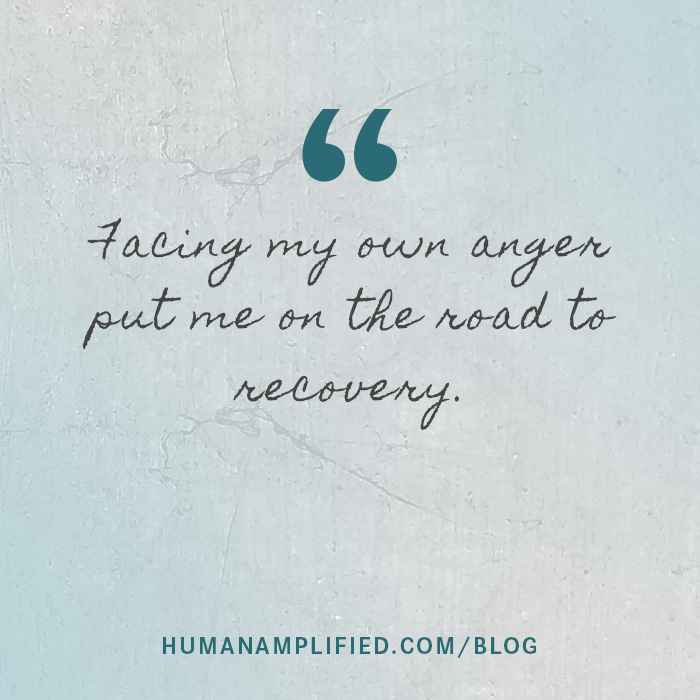Anger Management: My Stay in a Psychiatric Hospital in the 90s
Written by Robin Land
Photo provided by Robin Land.
So, let’s talk about my friend Leo and something about acceptance.
Leo was a person of relatively large stature, burdened with an equally measurable level of anger. He was my roommate some years back - a living arrangement forced upon us from the administrators in charge of the hospital. We were residents of a long-term psychiatric hospital in Dallas, TX.
Our shared living arrangements were something neither of us desired. He preferred to live alone, and I preferred to not room with someone who looked as though he could kill me, or at least mangle me, at any time.
You can check in, but you can never check out, right?
Just a note: back in the 90s if you checked into this top-rated psychiatric hospital, it was the same as checking into Hotel California. As the song says: “You can check in, but you can’t check out.” That is, till your were considered healed, which often coincided with your insurance expiring or your family running out of money.
Leo had a history of outbursts. His vocabulary was limited to a hand full of common curse words. He had managed to master inflection, tone, and body language. So even with such a limited amount of words available his communications left no room for doubt about how he felt.
One time in line for lunch, ahead of me I saw trays being knocked about and flying through the air along with people being flung right and left as Leo made his way towards the front of the line. Not that it really matters, but I think it was taco day and Leo was very fond of Mexican food. He was not a very patient man.
So as a matter of safety I always made sure I was in line behind him for meals and any other activity where a line was required. I don’t remember him ever being in a clam state of mind - just different levels of anger. It was his level of anger you had to watch out for. You know: Defcon 4, 3, 2, or nuclear war.
While at the hospital, I dubbed him Leo the V-shaped man from Canada because his favorite pastime was working out in the gym. He had that bodybuilder “V” shape build from his shoulders to his waist and then massive legs to hold the guy up. He had a mind polluted from steroids.
Although it was my nickname for him, I certainly never said it to his face or any other name for that matter. Challenging him would be more than stupid - it would just be plain suicidal. Not that several of us weren’t already suicidal, just neither me nor anyone else wanted or desired to be broken in half for angering the guy.
After six months of in-patient treatment, the hospital placed me into their version of a half-way house program with the last person in the world I would want to share space with. Leo, the “V” shaped, steroid afflicted, angry man from Canada was the nightmarish version of a roommate you find in a horror movie. Now he and I were sharing meals, activities, and a home.
The new living arrangements were just across the street from the main hospital grounds. Although designed for long term patients to transition back into the world of the sane, you really ended up in the apartments when your insurance downgraded your medical benefits. There was more freedom in daily schedules, such as fewer nurses on staff, and fewer doctor appointments. Residents, patients, were required to attend the minimum, scaled back services for care. Therapy classes, group sessions, there were a lot more group sessions, and a minimum amount of doctor appointments for medications. If you had a car, you were required to look for a job, which was kind of funny since most of us were loaded up on prescriptions and most of the time in a foggy, hazy state of mind.
We were responsible for most of our meals and were expected to prepare them and eat at home. One of the house requirements, to help take up the slack from the lack of personal staff, was for everyone in the program to share an evening meal in the main lounge (club house) before the evening group session. Cooking and shopping for our fellow residents was part of the process.
So, one week on a Thursday, during meal prep, Leo decided to play alpha male. He pointed a butcher knife directly at the center of my face with the tip of the knife stopping about two inches from the tip of my nose. Leo often behaved like this just to see if you would flinch. I didn’t.
At that very moment, it was announced that his and mine names were included on the team list for grocery shopping for next week’s group’s meals. On Friday evening, we both found ourselves in the middle of a Sam’s Club warehouse store shopping for a bunch of people we didn’t know and under the supervision of two nurses. One of which was brand new, whose name I have forgotten, and the other, Tasha, a more experienced nurse who had been on the job for a while. It’s worth noting she was barely five- foot five- inches tall.
Leo and I were chauffeured to Sam’s Club in a short white unmarked bus, with a handful of other patients and our two-nurse escort. The goal was to get in and out of the store and do our shopping without drawing any attention to ourselves. Which seemed like an ironically unattainable goal given the makeup and personalities of the group.
Getting in and out without drawing attention to ourselves, well it didn’t work out that way.
Remember Leo was an extremely large individual and an incredibly angry man with a limited vocabulary made up largely with words that start with the letters “f”, “d” and “s”. It’s best if you use your imagination here. Oh, I wasn’t kidding when I said he had an extraordinarily little amount of patience.
Leo, from Canada, was unfamiliar to Sam’s Club shopping protocols. Things like bulk buying, bundling of items, long lines, membership cards, and bag-your-own-check out with only boxes for load up. All these little inconveniences brought on a meltdown for Leo.
There were a couple of frightened cashiers, a very tense store manager, customers abandoning shopping carts and dashing out the door, a little bit of yelling, mostly from Leo, several frightened patients, including myself, and our hopes and prayers for an uneventful and low-key shopping trip gone up in smoke.
It ended with our five-foot five-inch nurse Tasha standing toe to toe with Leo, the V shaped man from Canada, repeatedly poking him in the chest as she calmly and firmly told him to settle down.
We don’t know what happened to the nurse trainee, We presumed that, like Elvis, she had left the building. Tasha seemed to be the only thing between us and all out mayhem. We all figured he would end up killing her and Leo would go down like Kong falling from the Empire State Building.
After what seemed an eternity and Tasha had calmed the beast, we gathered our groceries and headed back to our little white unassuming van.
Leo and I were the last two to get back into the van. He turned, looked at me and said, “I almost lost it in there. I almost lost it all.” I thought to myself what an interesting perception of an event I’m sure many saw as a nightmare example of an angry man out of control.
Over the weekend while sitting at our “apartment” I asked him how he had ended up here at the hospital. All Leo said was that he wanted to get back home to his wife and child in Canada. Later I discovered he was never married or had a child. He landed in the hospital after being arrested for breaking into a home of a lady and her son whom he believed were his family. These were events brought on by an overuse of steroids from a guy who used to be bullied as a kid.
Checking Out
Not long after all this took place, I was laying in my bed asking myself, “how did I get here?” I understood how he ended up here, and I even kind of understood why. I knew the events leading up to my self-commitment to the hospital, but not the reasons why. So, “how did I get into this mess?”
That night, the noise from a life of stress and anxiety played furiously loud in my head. I couldn’t make it stop. I got up from bed, moved towards the bathroom and I just shoved my fist into the mirror. The goal: take a shard of glass and cut my wrist. I didn’t, though. Instead, I woke up three days later at a medical facility with the taste of charcoal still in my mouth.
There is a level of understanding out here on the surface of the human condition that affords us a moderate degree of acceptance allowing that some days are just harder than others. The kids won’t behave as told, your spouse is upset about something said a week ago, and it looks like you’re going to be late for work. You know what I mean - topics acceptable in polite conversation.
It is also accepted that some days are even tougher with the stress piling up in your chest by the moment. You get to work and find out you’ve been fired. Later in the day you catch your spouse cheating on you, or you get that “call” notifying you a family member has died. Still, events you can share, but with a smaller group of friends.
During our lifetime, these moments, both big and small, play out in our thoughts as if in slow motion, similar to an out of body experience. Yet they also feel rather familiar and routine like we’re actors in a movie who have spent an enormous amount of time rehearsing the scenes over and over. We’ve experienced them many times.
We’re often hiding in the shadows watching from afar. Like being in a dark movie theater watching our favorite show, for the fifteenth time. As the credits roll and the lights come back on, these stressful moments are forgotten as quickly as they happened. As we exit the movie theater, they are tossed to the back of our mind just like disposing our box of popcorn into the trash bin on the way out of the theater door.
Then a new day begins. The stress isn’t forgotten. It’s just pushed back into the dark.
Then there are some days harder than what we could have ever imagined. They never seem to end. NEVER. You can’t get the noises and conversations of life out of your head. But it’s more than that - it’s levels on top of levels of various moments in life, noise on top of noise. If you quiet one, another makes its way to the top. All the stresses of life are not as easy to dismiss as our popcorn at the theater. Under all these layers is a paralyzing mystery. There is no one to talk to. No one could possibly understand.
Making it Out: Acceptance
So the point of the story is that even though the reasons why I felt the way I did are important, the way out was sometimes taking the focus from why did all this happen to understanding and accepting how I actually felt at that very moment.
Leo couldn’t accept he was an angry person; I didn’t realize I was angrier than he was.
Taking the focus from why or how I got there to accepting and facing my own anger put me on the road to recovery.
How have you been dealing with anger lately? Let us know in the comments.
About the Author
Hi, I’m Robin Land from Tyler, TX. I’m a retired newspaper publisher who believes in freedom of speech, the rights of the individual, and civility between people. I run the View from the Carnival podcast because I am passionate about bringing awareness to mental health issues with conversations that focus on real people in their own words.
I am not always the most articulate person, but I always speak from the heart and sometimes from the hip.
When I’m not shining a light on mental health issues over the internet airwaves, I’m working at being a loving husband, father, and friend. Oh, and did I mention my wife and I have a blast dressing up our podcast studio mannequin, Tina, in steampunk costumes and sharing her with our fans.





